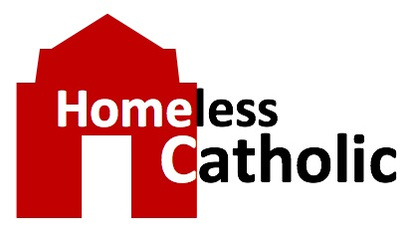The two audiences of Matthew
Matthew, who wrote His Gospel primarily to Jewish readers (his 1st of 2 intended audiences) was proving that even though the Jewish people rejected Jesus, He truly was the Messiah that the Scriptures promised He would be.
His manner toward those who opposed Him revealed His true nature as the Messiah sent from God, and sets the tone for what Matthew then goes on to tell us (his 2nd audience - who he signals to with thee phrase, "in His name the Gentiles will hope").
Image by Radfotosonn
My Unquarrelling Conqueror (Matthew 12:14-21)
By Tim Trainor
http://www.usccb.org/bible/readings/071820.cfm
Micah 2:1-5
Matthew 12:14-21
Theme: As the Messiah sent from God, how Jesus' manner toward those who opposed Him reveals His true nature and, thereby, how mercifully Jesus will deal with each of us.
We come today to a passage in Matthew's Gospel that would be easy to pass by. I know that I initially did.
But on closer examination, I now see it as one worthy of our REFLECTION upon this morning as it not only holds some VERY timely advice on how to relate to our neighbors BUT more importantly grasps how Jesus has pledged that He will always relate to each one of us!
The setting for these words is very important to take into account. They come in a central place in Matthew's telling of the Gospel story; and particularly at the time when opposition to our Savior's message and mission was mounting. The opposition against Jesus was growing in earnest, and now it had taken a deadly turn. The Pharisees and religious leaders had set into motion plans to destroy Him, plans that would eventually lead to His crucifixion. And when Jesus realizes this - He withdraws (he 'breaks contact and avoids battle with His adversary' as we in the military use to say).
It's then that we find this very unusual, insertion into the story, a quote from Isaiah:
“Behold! My Servant whom I have chosen,
My Beloved in whom My soul is well pleased!
I will put My Spirit upon Him,
And He will declare justice to the Gentiles.
He will not quarrel nor cry out, [Is this the explanation of His withdraw?]
Nor will anyone hear His voice in the streets.
A bruised reed He will not break,
And a smoldering wick He will not quench,
Till He sends forth justice to victory;
And in His name the Gentiles will trust”.
The importance of this passage being here is in that it summarizes for us the CHARACTER of our Savior's mission AND His personal NATURE which is being described by Matthew throughout his Gospel - PLUS - it does so via an Old Testament Prophesy. It helps us understand why Jesus—for much of His earthly ministry—kept distant from the Jewish leaders who opposed Him. In Matthew's story, Jesus doesn't go to Jerusalem until chapter 21—and even then, it was in order to submit Himself to death on the cross. Even though a great and powerful multitude of people followed Jesus, He nevertheless didn't come to fight and do battle with the religious leaders of the day. He did not come to DO BATTLE with those who opposed Him. Instead, He came to teach the truths about His Father's kingdom to those who would hear Him, and then die on the cross so that sinners may become citizens of that kingdom.
But this passage also proves something else about Jesus. In it, Matthew reminds us that—long before Jesus came—God told the people of Israel what kind of a Messiah He would be. And here, Matthew gives proof that Jesus came and fulfilled the kind of mission (that of a "Suffering Servant") that God said He would — and did so in the very manner that Old Testament Scriptures, like our quote above from the book of Isaiah, had promised.
Matthew—who wrote His Gospel primarily to Jewish readers (his 1st of 2 intended audiences) was proving that even though the Jewish people rejected Jesus, He truly was the Messiah that the Scriptures promised He would be. His manner toward those who opposed Him revealed His true nature as the Messiah sent from God, and sets the tone for what Matthew then goes on to tell us (his 2nd audience - who he signals to with phrase, "in His name the Gentiles will HOPE").
Who is this 2nd Audience? Why it is us! We the OMG members who are gathered here today, 'in His Name', ARE these VERY 'Gentiles of HOPE' that Matthew speaks of!
What do you think of that?
YES - You & I the "Gentiles of HOPE" spoken of here!
This passage also tells us of the NATURE of Jesus and thus why we can have Hope. He is the Perfect Servant. HE is Gentle towards PEOPLE who are: “a bruised reed [that] he will not break…”
Isaiah is talking about a marsh reed. They were everywhere. They were common. They were fragile. Sound like anyone you know?
A reed was actually used for a flute, a measuring rod, a pen, and a number of other things.
Although reeds had many uses, once one was broken, it was quickly thrown away and replaced by a better one.
The musical instrument made of a reed, which shepherds used back then, when bruised, was flung away by the musician, as he disdained to spend his breath upon such a now vile instrument that emits no pleasant sound.
So a bruised or broken reed represents weakness and helplessness, something the world would quickly toss away, not pay any attention to.
This passage also tells us: “a smoldering wick he will not quench…”
A smoldering wick is annoying. Not only did it not give much light, it produced annoying smoke. Naturally, one would NORMALLY snuff it out and be done with it.
Also, wicks were made of flax which was cheap. So, why spend time fixing it, just replace it instead. That's the wisdom of the world, isn't it?
Well, most people would discard a broken reed or a smoldering wick … but not Jesus. Hopefully, all of us get the fact that each of us is a bruised reed and that the person and work of Jesus (His nature and mission) will sadly remain necessary for each of us as we go thru life because we seem to always be in need of some 'fixing.'
Reference this passage, St. Augustine says: So He neither bruised nor quenched the Jewish persecutors, who are here likened to a bruised reed which has lost its wholeness, and to smoking flax which has lost its flame; but He spared them because He was not come TO judge them, but to be judged BY them.
Interesting! Could this be said to also apply to we present-day Gentiles?
St. Jerome calls the Jews a bruised reed, whom tossed by the wind and shaken from one another, the Lord did not immediately condemn, but patiently endured; and the smoking flax He calls the people gathered out of the Gentiles, who, having extinguished the light of the natural law, were involved in the wandering mazes of the thick darkness of smoke, bitter and hurtful to the eyes; this He not only did not extinguish, by reducing them to ashes, but on the contrary from a small spark and one almost dead He raised a mighty flame. I believe we now call that 'small spark' that he mentions grew is Christianity. (Boy - can that Saint Jerome guy write!)
Bruised Reed & Smoking Flax, the General Catholic Meaning
This refers to the first awakenings of the soul which is greatly defective: self-knowledge is then dim, as the smoking wick, and good purposes weak as the broken reed; yet, under the conduct of Christ, these unpromising dispositions will improve by continual accessions of divine light, till the penitent sinner, enabled to lay hold upon Christ by simple faith, becomes conscious of an interest in the Sacraments and feels a renovation of nature, which is here meant by sending forth judgment unto victory.
IN SUMMARY
In the prophecy, the “bruised reed” and the “smoldering wick” refer to a spiritually, physically, or morally weak. A reed that is bruised may be damaged, but it is not irreparable. A “smoldering wick” may be about to lose its fire altogether, but it can still be reignited.
Again - Bruised Reed
St. Jerome cites a musical instrument made of a reed which shepherds used to have, which, when bruised, is flung away by the musician, as he disdains to spend his breath upon such a vile instrument that emits no pleasant sound.
And Again - Smoking flax
Though Jesus walks in the way where bruised reeds lie, He will step over them, and not break them more. He will not tread upon a little smoking flax that lies languishing upon the ground, and so put it out with His foot, though it hurts the eyes with its smoke, and offends the nostrils with its stench. And smoking flax shall he not quench. Flax was then used where we now use cotton, as wicking for lamps. Imperfection in the fiber of it would cause it to smoke. A normal man, irritated by the fumes of the smoking wick, would put it out, and cast it from him. But the Lord's servant would patiently fan it to flames.
IN CLOSING
Each of us in some way is a “bruised reed” today. You may be pressed down with the troubles of this world. You may be struggling with doubt and fear. You may be feeble and disheartened.
But know this: We can TRUST Jesus will not throw ANY of US away. He PLEDGES He will ALWAYS strengthen and re-ignite each of us!
That's the GREAT NEWS that comes to each of us today!
HOMEWORK
Take some time and apply this teaching to yourself by developing a statement that describes how Jesus has, and is now relating to you plus the actions He takes as He REFUSES TO let you be thrown away!
For instance, because of my military background, I see Jesus as doing battle & 'CONQUERING' the death that is within and without me as He repeatedly parachutes in and 'LIBERATES' my soul from the World in an 'UNQUARRELLING' manner. Thus my name for this Reflection: "My Unquarrelling Conqueror"!
Now it's your turn. How do You see it?

